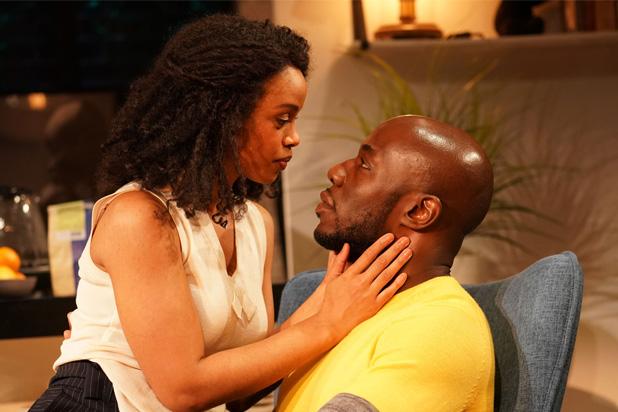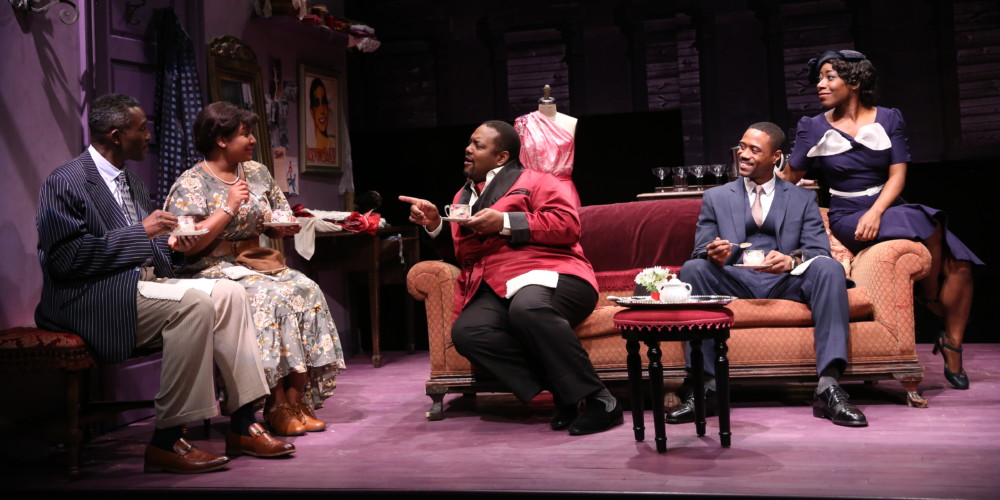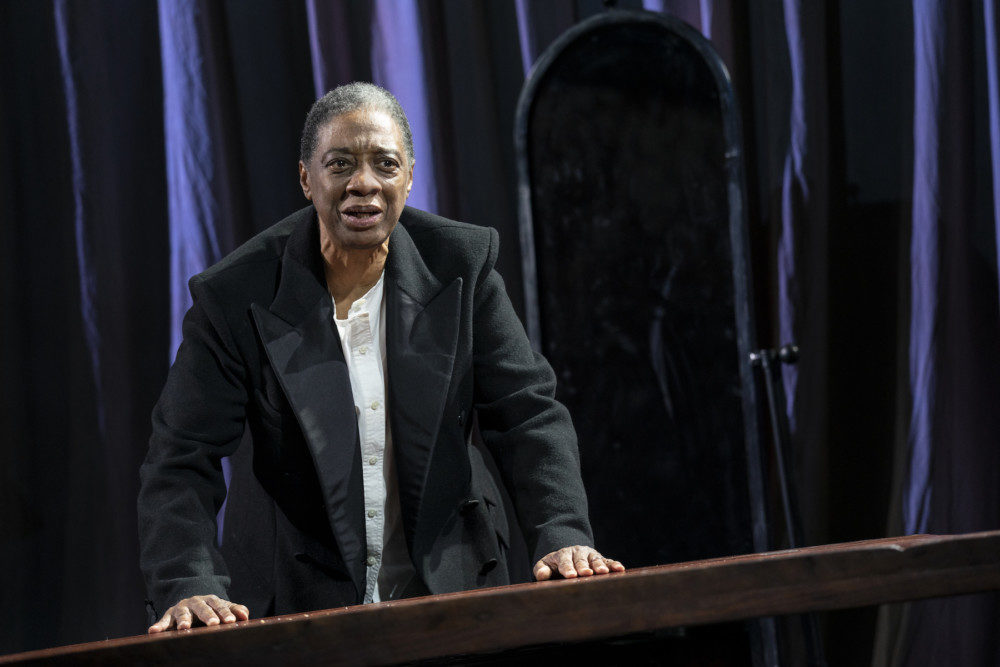

by Matt Smith
“I’m not used to having someone my own age die.”
Such is the idea grappled with in Samuel D. Hunter’s The Healing, a world-premiere presented by all-inclusive theatrical company Theater Breaking Through Barriers. The show follows a ragtag group of former camp buddies who come together to mourn the untimely death of one of their own.


Pretty straightforward, right? Wrong! In keeping with TBTB’s mission of inclusion, all the actors are “differently-abled” (to use a term coined by Spring Awakening’s Ali Stroker last Fall) in one way or another. Still not impressed? The genius of the piece — and the power in the performances — lie in the fact that their disabilities, while they drive the story in part, are also not treated as “disabilities.”
Director Stella Powell-Jones even hides their disabilities at first — the incredible Shannon DeVido, in a wheelchair as a result of spinal condition is propped up behind a couch while David Harrell, equal parts moving and hilarious as Donald, hides his missing right hand under a plate of cake — allowing characters to be established as characters within the story, rather than “disabled people” on display.
To that end, the dialogue doesn’t harp on disability, either — instead, the characters discuss everyday, ordinary minutiae, such as work life, daily drinking habits, and dating struggles. The writer has incorporated the disabilities so seamlessly into the storyline, you probably even won’t find it that jarring.
However, while the attention is drawn away from these differences, at the same time, the disabilities are, in fact, a major driving force in the plot: As we learn, their camp counselor, Joan (Lynne Lipton), told them, “If we prayed hard enough, we would fix our broken little bodies.” While the rest of the group rallies to have the camp shut down for Joan’s remark (and her subsequent somewhat insane behavior), Zoe (Pamela Sabaugh) — the deceased, and able-bodied, member of the clan — takes the advice to heart, and goes off on a prayer binge she can’t shake, even as she enters her 30’s. Just days before her passing, she’s seen (in seamlessly integrated flashback scenes) attempting to “heal” herself from strep throat through messages to God and through the powers of her “healer,” roommate Sharon (DeVido). She claims Sharon has power — “I can’t take care of myself… God gave you the gift of healing,” she tells her friend — but Sharon’s really just slipping antibiotics into Zoe’s food when she’s not looking, with both “cures” Zoe of strep and keeps up the illusion of having divine power.
It’s interesting to consider that the able-bodied performers portray characters who are somewhat delusional mentally (evidenced by Zoe’s addiction to prayer or Joan’s nonsensical “advice”) — in direct opposition to the physically challenged characters, who are the most clear-headed of the players. In presenting the characters in this way, it evens out the playing field, so to speak, as if to say, “Nobody’s perfect. Even if you’re able-bodied, you still may not be ‘right.’ We’ve all got something going on.” It’s an incredible message, and it packs a severely emotional punch, despite being so subtly placed within the piece.
In terms of performances, major props to Jamie Petrone (Bonnie), who moves the room with an all-too-relatable monologue about “walking on eggshells” around disabled people (“[I was] angry at myself for not feeling normal,” the wheelchair-bound character says after one of her daily panic attacks), and feeling trapped in her headspace, desperately seeking relief. Also praiseworthy was Mary Theresa Archibold (who uses a prosthetic arm to portray the able-bodied Laura) gives a performance that is equally praiseworthy — especially when she brings well-received comic relief through her hilariously awkward delivery of TLC’s “Waterfalls,” which she sings to the Deaf Greg (a truly inspirational John McGinty), in an attempt to relate to him (she performed the song in ASL in high school). Kudos, on the subject, to TBTB for not only utilizing a Deaf actor in their show (therefore broadening the scope of what can be done onstage) but also for having him actually speak — further shattering stereotypes and going beyond expectations.
And then there’s the message. Ultimately, at the end of the show, they determine Zoe cannot be brought back by healing, and — in a matter of speaking — neither can they. But in accepting that fact, and ultimately, “making room for other things,” maybe they’ve discovered they have the ability to heal after all. Maybe it comes from within. They just had to go through this harrowing journey to find it all out. But oh, what a journey it was… and oh, how “healed” we all felt at journey’s end.
The Healing is currently playing the Clurman Theatre (412 W. 42nd Street) through July 16th. For more information, visit www.tbtb.org or http://www.theatrerow.org/clurmannowplaying/.
Photos: Carol Rosegg
NOTE: The author of this article has mild cerebral palsy.





















